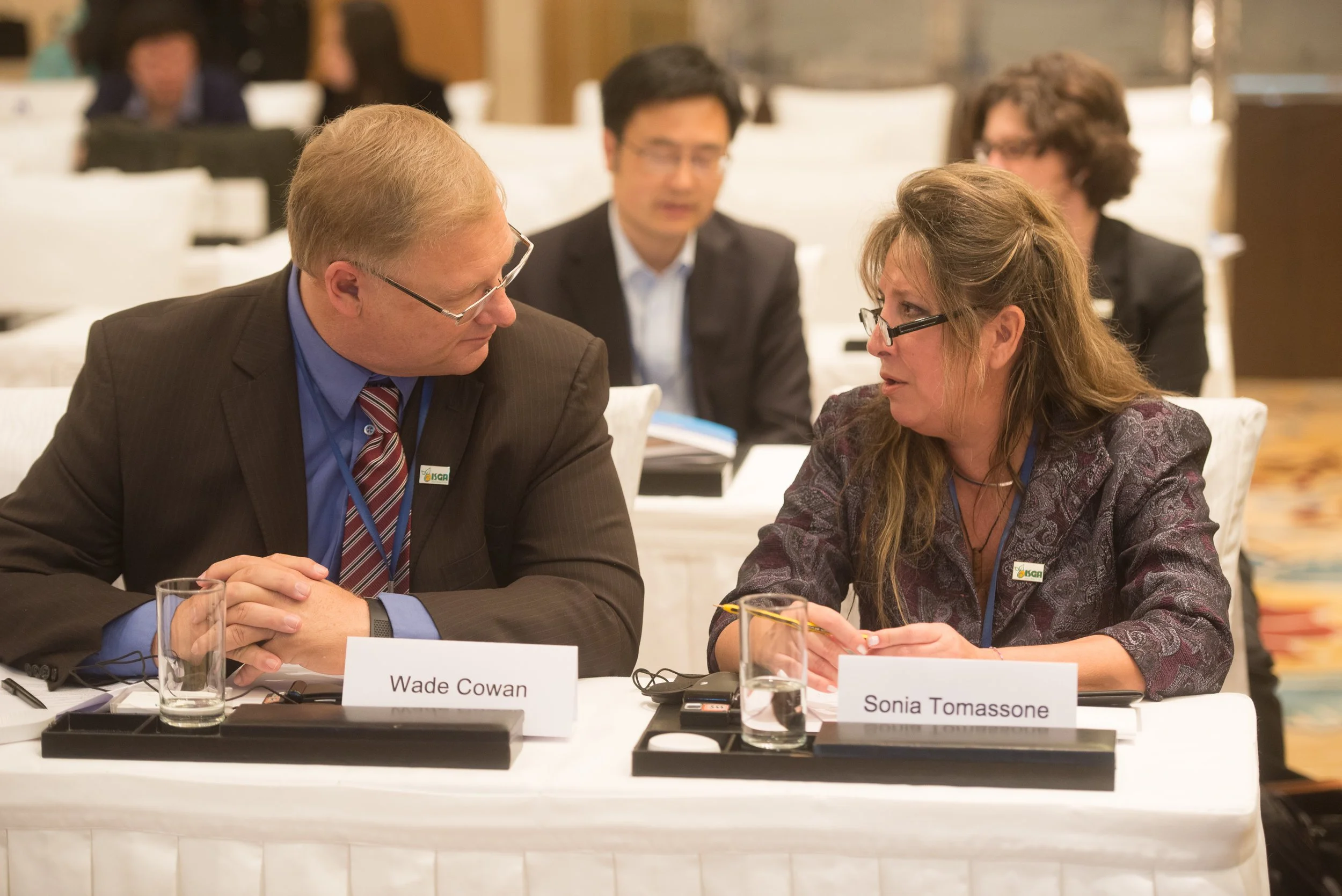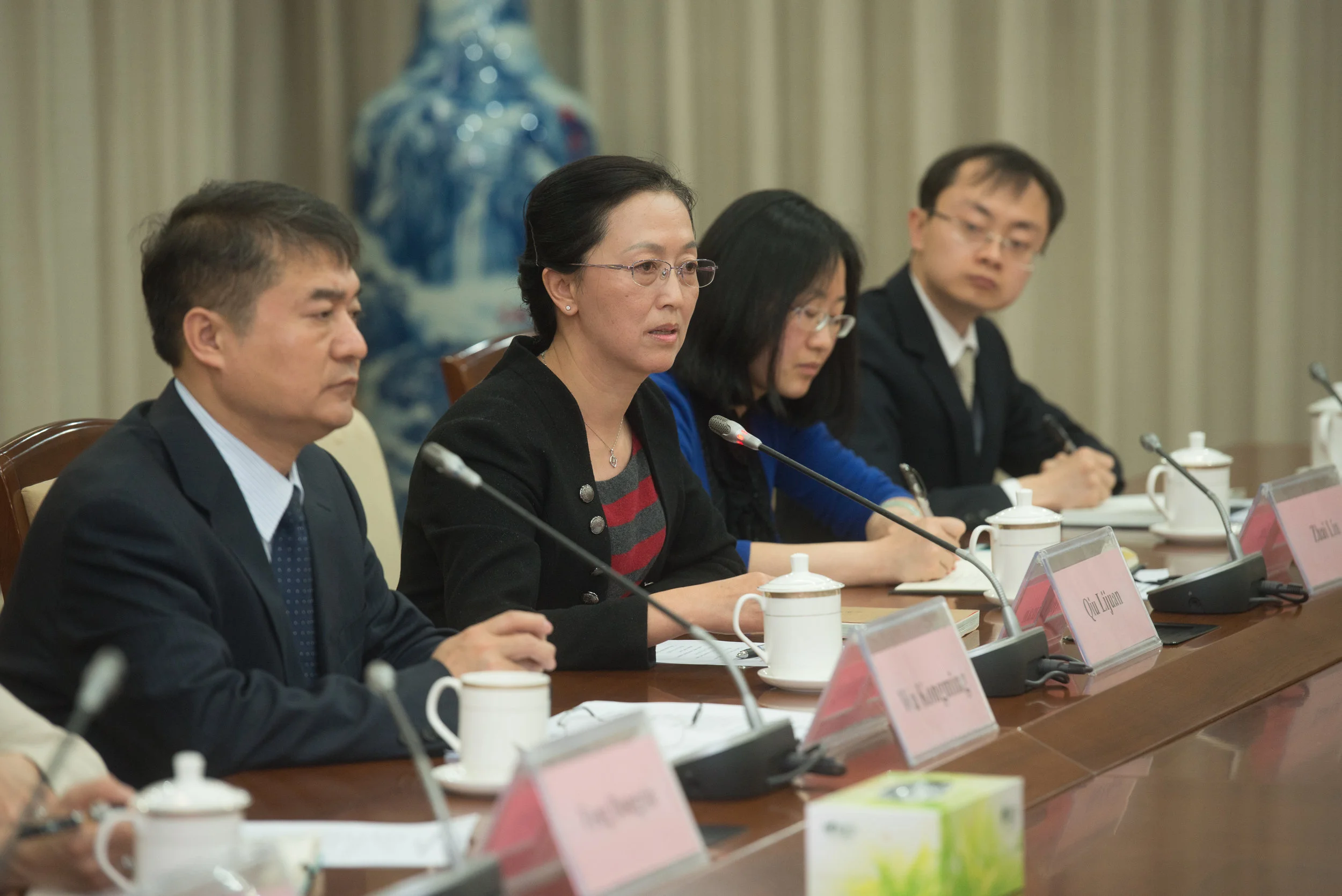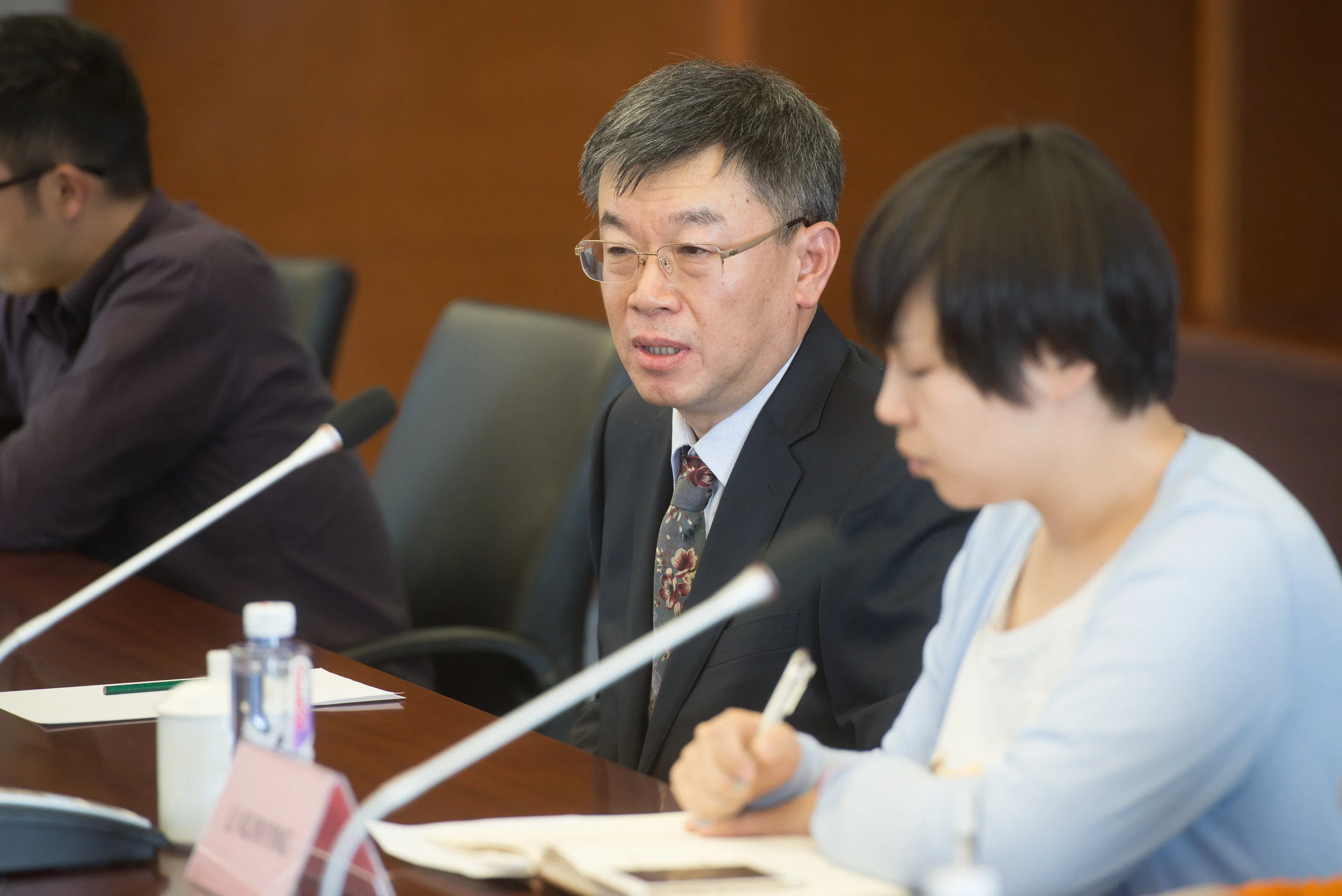Overcoming “flatlander” syndrome

By Joseph L. Murphy
How do you overcome flatlanders? Those people who shrug-off science and embrace misinformation. The people who thought you would sail off the edge of the world until explorers armed with science proved the earth was round.
Wade Cowan, President of the American Soybean Association, and Sonia Tomassone,a trade consultant for the Paraguayan Grains and Oilseed Exporters Association, discuss biotechnology issues last week at an ISGA meeting in Beijing, China. (Photo: Joseph L. Murphy)
That was a question Wade Cowan asked a group of farmers and industry leaders at the end of a three-day International Soy Growers Alliance (ISGA) meeting in China.
It was one of many questions asked during the three-day visit in China as leaders from Brazil, Argentina, United States and Paraguay talked with high level Chinese government and business agencies in hopes of them accepting new biotechnology seeds and farming practices.
Finding an answer to that questions and others seemed simple. Use communications from a unified group of countries to promote the understanding of biotech crops and food safety. But as many representatives of ISGA found, China is setting the pace, and in some cases, making the rules on approving biotech events. That pace and the undefined rules for biotech approvals are causing financial and social shockwaves around the globe according to a White Paper that was released in conjunction with the ISGA visit.
“It matters to all of us that we have freedom to operate and that we have the ability to use the tools in the toolbox,” Cowan said. “When they say it could take seven years to get a trait we can use in our fields, they have effectively taken away 25 percent of your productive life as a farmer. You couldn’t tell a wage worker in town that you would take away seven years of their productivity and knock them down. Science is science and once it is approved it needs to be approved everywhere.”
Through meetings with high-ranking industry, education and government leaders in China, members of ISGA presented information in a unified front to try and streamline the approval process. But to do that they found they have to overcome the fears of genetically modified crops when it comes to the Chinese people.
Wu Kongming, the Vice President of the Chinese Academy of Agricultural Sciences, meets with ISGA members last week in Beijing, China. The ISGA promoted GM technology as a key component in addressing global food security issues during the meeting. (Photo: Joseph L. Murphy)
“I understand the conflict lies in the fast pace of research and development of GM events and the delay in approvals in consumer countries like China,” Chen Xuecong, the vice general manager of Sino Grain, said through an English translator. “From the perspective of the importers they have their own process and their consideration is more focused on food safety and the safety of biology. I believe that communications to the public is very important and it is also important for you to provide massive proof to show biotechnology is safe and that it will provide safe food for consuming country.”
That answer, in one form or another, was repeated to each group of ISGA international farmers as they met with the Chinese organizations. Organizations like the Department of American and Oceanian Affairs Ministry of Commerce, the Chinese Academy of Agricultural Sciences and the Department of Supervision on Animal and Plant Quarantine.
“It would be a significant improvement if all the ISGA countries together with Chinese industry could work together to create a pilot program for soybeans,” Jim Sutter told Chen Xuecong and others gathered at a meeting.
Chen Xuecong discusses biotechnology issues with members of the ISGA during a recent visit to Sino Grain in Beijing, China. (Photo: Joseph L. Murphy)
The ISGA, formed 10 years ago from countries representing 95 percent of the world’s soybean production, has been working together in a united front to prod European and Asian countries to approve biotechnology events in an efficient manner. The ISGA representatives that participated in the mission to China know their message is being received, but the actions of the Chinese government are still undefined.
“This week everyone was talking the same language and for me it was impressive,” Sonia Tomassone, a trade consultant for the Paraguayan Grains and Oilseed Exporters Association, said. “We need to present a single paper to everyone we met with to show we have one voice on this issue.”
Originally published for the Iowa Soybean Association. Find more great stories at: www.iasoybeans.com/news
For more than two decades, Joseph L. Murphy has had the pleasure of meeting and connecting with people from all walks of life through photography. He has photographed presidents and heads of state, traversed the winding alleyways of the Fes Medina in Morocco, photographed the sprawling countryside and people that make up Argentina and covered events that have defined the U.S. Most recently, Murphy’s travels have taken him to Cambodia, Mexico, China, Vietnam and Ecuador.
He has spent the past 20 years specializing in agriculture photography for multiple organizations, publications and marketing projects.
A graduate of the University of Iowa, Murphy determined at an early age that his love of photography would shape his vision for life.


